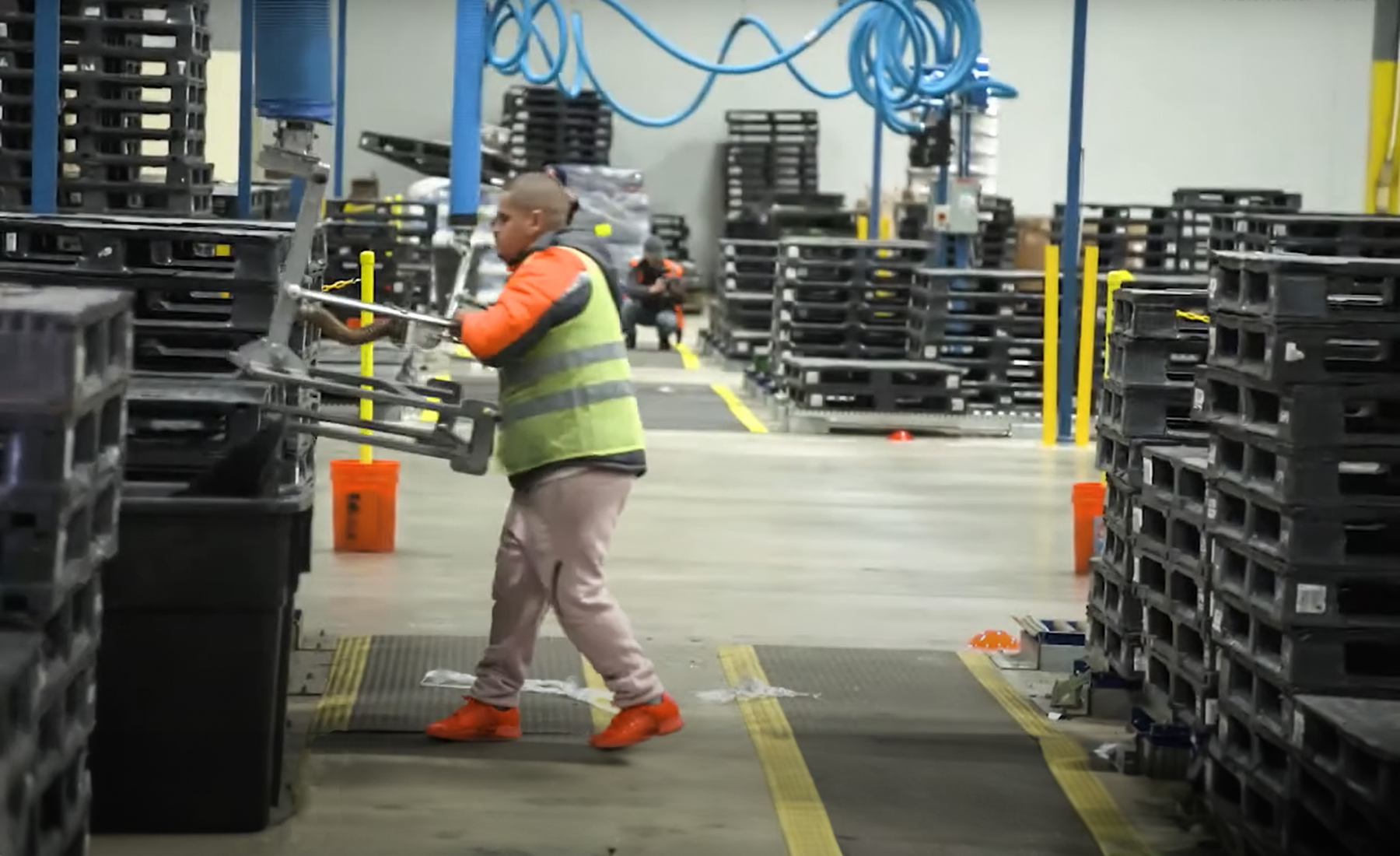In today’s rapidly evolving environment, waste management remains an ever-pressing concern. As markets continue to expand and consumer demands soar, the supply chain is central not only to producing waste but also to addressing waste management challenges. The supply chain encompasses the complete journey of a product, from raw material extraction to manufacturing, distribution, and eventually, to consumer disposal. And at each stage, there is the potential for waste generation, including excess materials, packaging, energy consumption, and emissions. However, by implementing effective waste management practices, manufacturers and retailers can reduce their environmental footprint and enhance their sustainability efforts. A variety of sustainable solutions can be implemented throughout the supply chain to minimize waste generation and promote a circular economy.
- Sustainable/Reusable packaging – Packaging is an essential aspect of the supply chain and can be a huge factor in waste created throughout the process. Among the leading modifications manufacturers and retailers are making to become more mindful of waste is switching to reusable packaging.
- Increased use of digital technology – Using digital technology to manage the supply chain can improve a logistics manager’s visibility into the supply chain and enhance the ability to ensure products are moving correctly and efficiently. A 2022 survey from McKinsey found that 67 percent of companies using digital technology in logistics have improved end-to-end visibility. This allows managers to identify potential issues and in turn, reduce waste.
- Engage sustainable partners – Partnering with a plastic pallet pooler to manage the shipping pallet fleet significantly reduces the waste a company’s supply chain produces. Plastic pallets don’t shed nails and splinters that end up in the trash. Providers like iGPS Logistics free companies from having to manage their own pallet supply and reduce the complexity of pallet procurement, storage, transport, and recovery – significantly reducing waste caused by pallets. Additionally, iGPS plastic pallets generally last four times longer than wood pallets and are 100% recyclable. At the end of their useful lifespans, they are broken down and remolded into new pallets again.
Benefits of Waste Management in the Supply Chain
Boosts Sustainability
By implementing waste management strategies, manufacturers and retailers can minimize their carbon footprint and conserve valuable resources. Proper waste management helps mitigate pollution, reduce energy consumption, and decrease greenhouse gas emissions, thus contributing to a greener and healthier environment for future generations. And, as consumers become more focused on sustainability than ever before, this is especially important to a company’s relationship with its customers.
Reduces Costs
Efficient waste management practices can significantly reduce costs within the supply chain. By implementing such strategies, companies can decrease their raw material and packaging requirements, leading to reduced expenses. Additionally, by implementing strategies such as reusable packaging and partnering with a pallet pooling company, businesses can minimize disposal fees and penalties associated with improper waste handling.
Optimizes the Supply Chain
Proactive waste management is essential for optimizing supply chain operations. By identifying waste generation points and implementing lean manufacturing principles, companies can streamline their production processes, eliminate bottlenecks, and reduce lead times. Effective waste management also facilitates effective inventory management by minimizing excess stock and improving demand forecasting accuracy. These optimizations throughout the supply chain can result in improved operational efficiency, enhanced customer satisfaction, and increased competitiveness in the market.
By prioritizing waste management practices, businesses can achieve numerous benefits. Embracing effective waste management as an integral part of the supply chain is not only socially responsible but also economically beneficial. As businesses strive toward a greener future, they must recognize optimal waste management strategies as a requirement to drive positive change and long-term success in the ever-changing marketplace.
Companies committed to prioritizing waste management in their supply chains use iGPS plastic pallets for all their shipping needs. Our lightweight, recyclable plastic pallets help make greener supply chains and reduce the Total Cost of Business. For more information, contact us at 1-866-557-0047, email a specialist at switch@igps.net, or visit our contact page.



